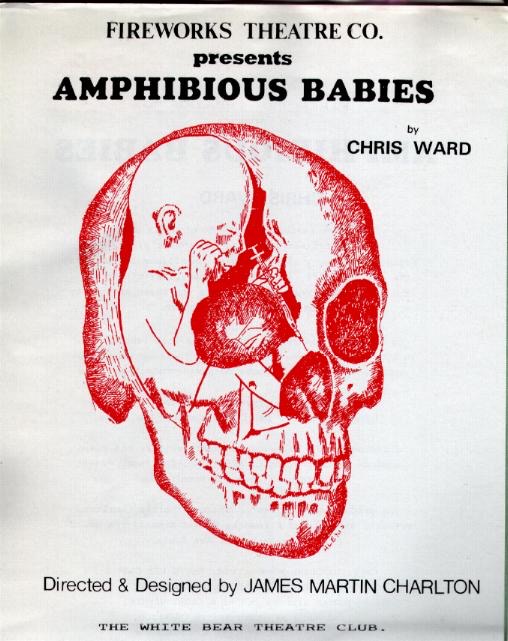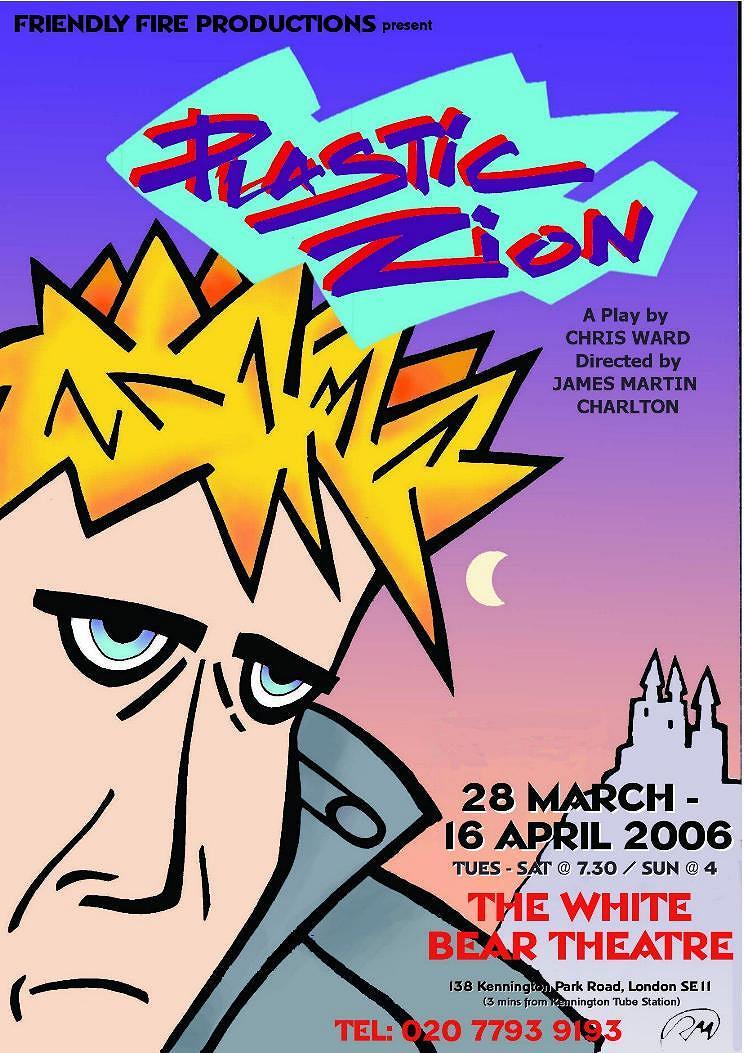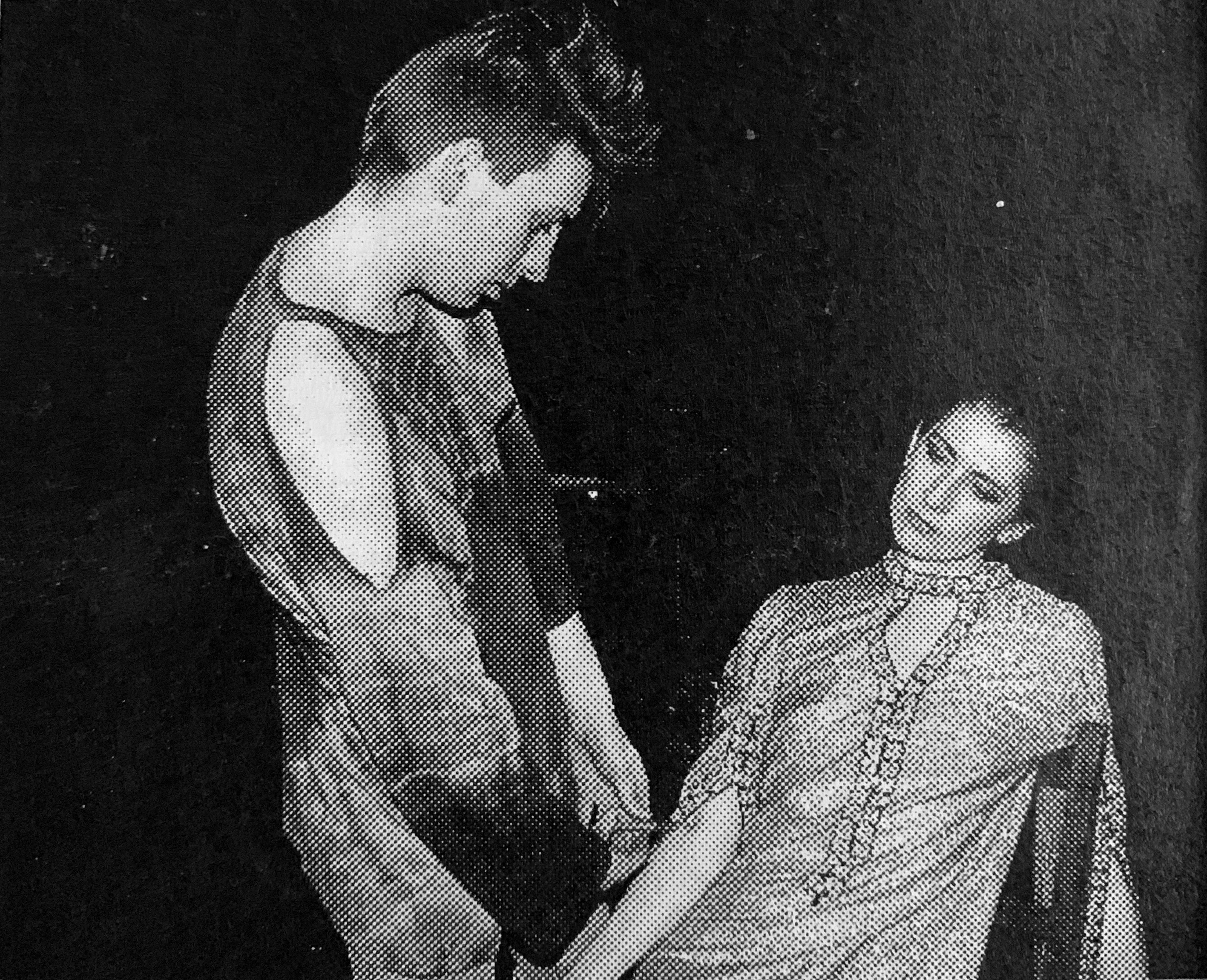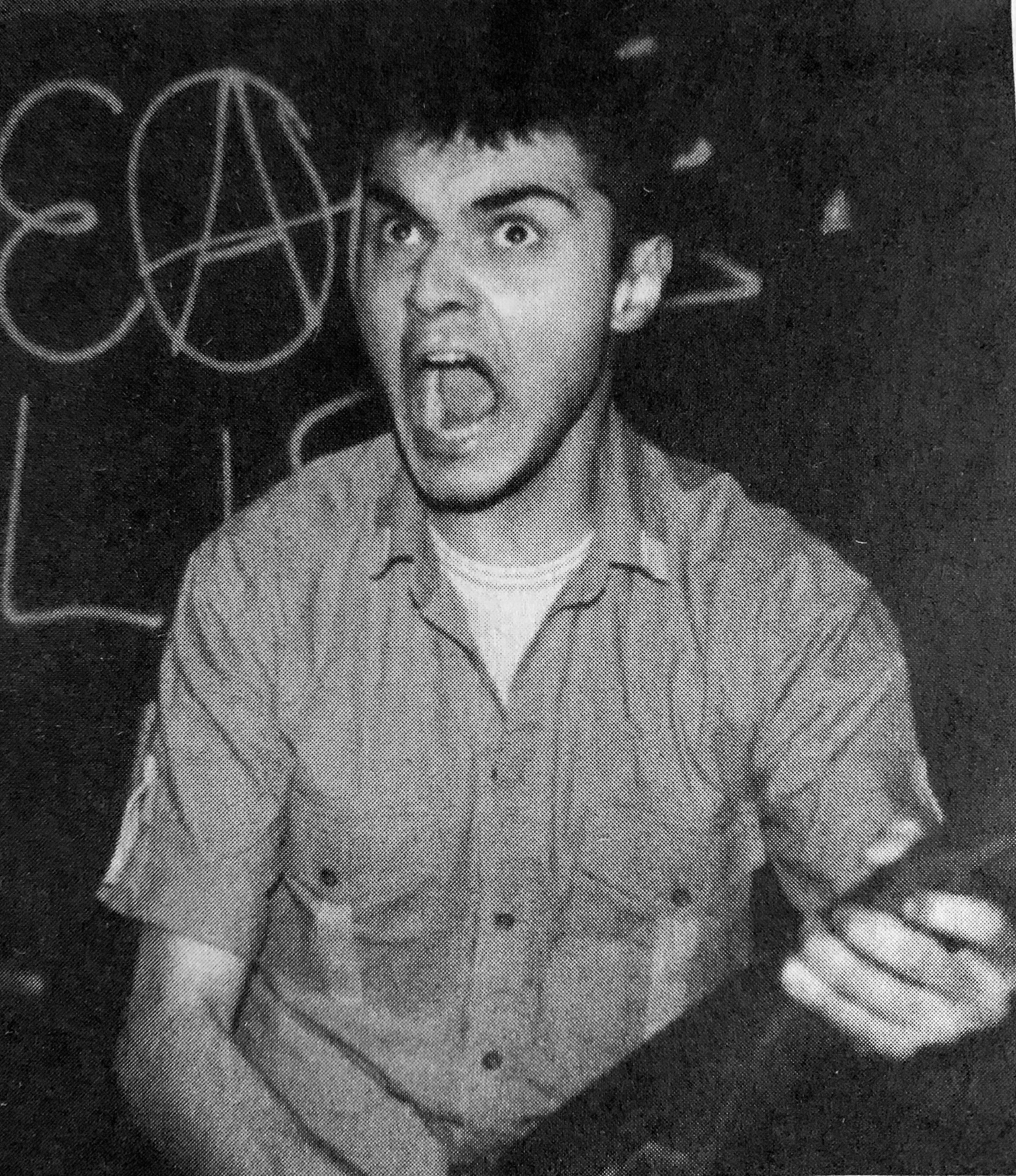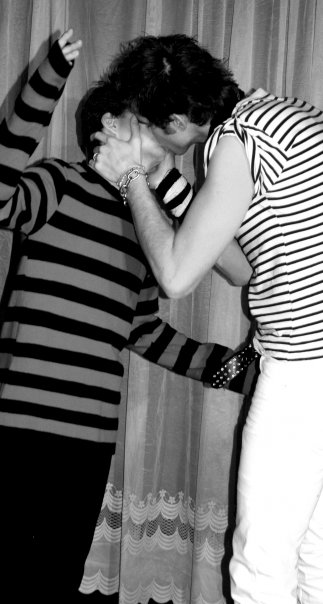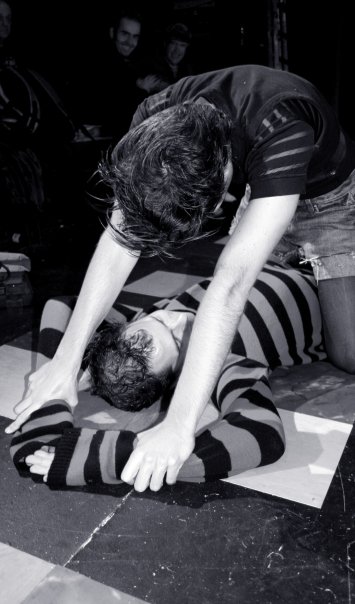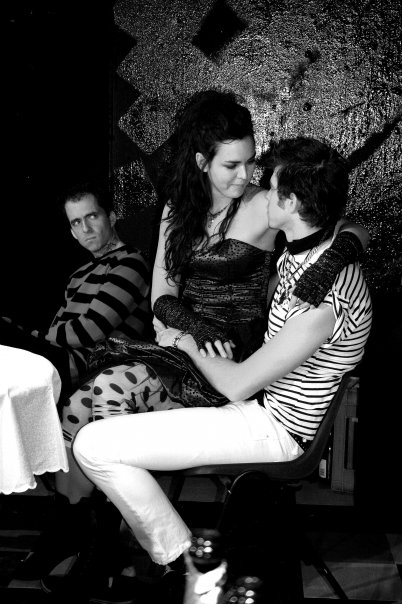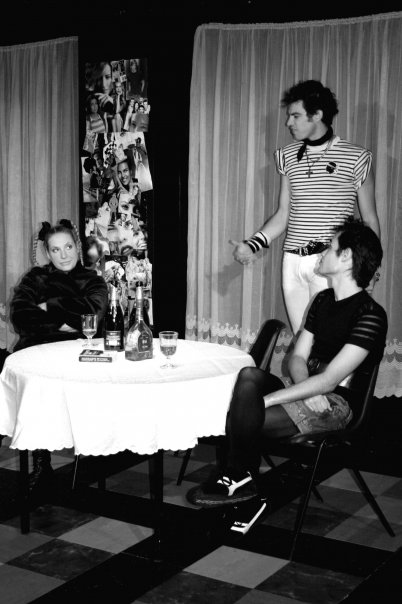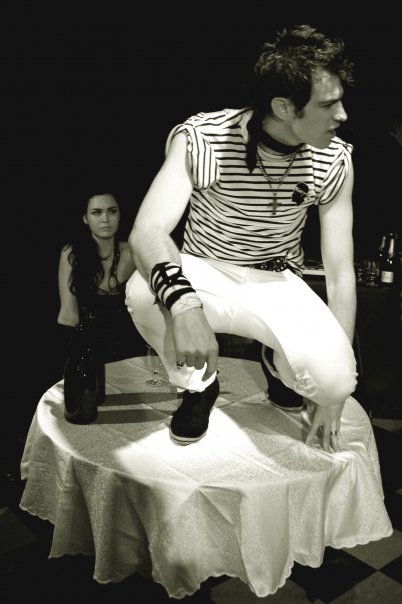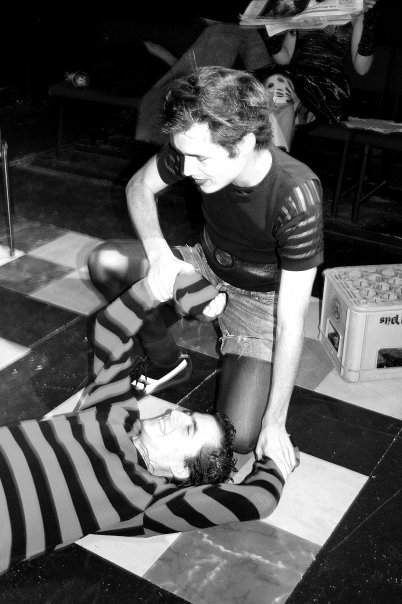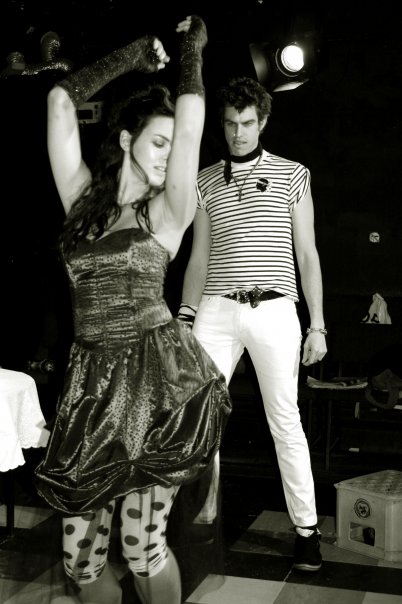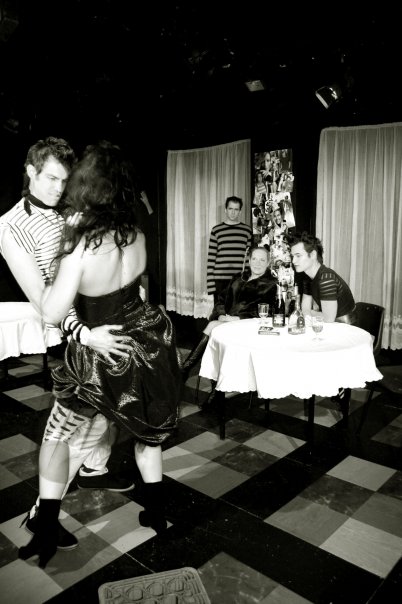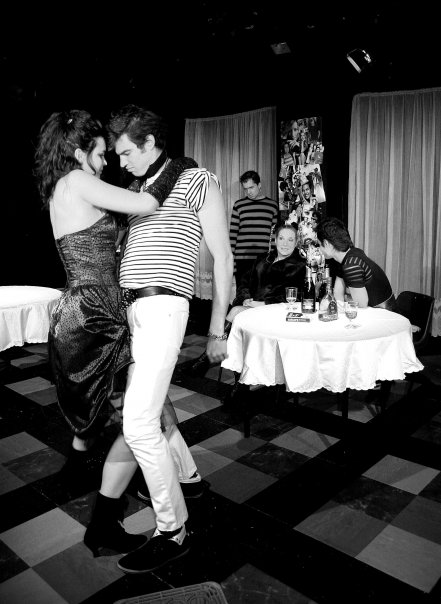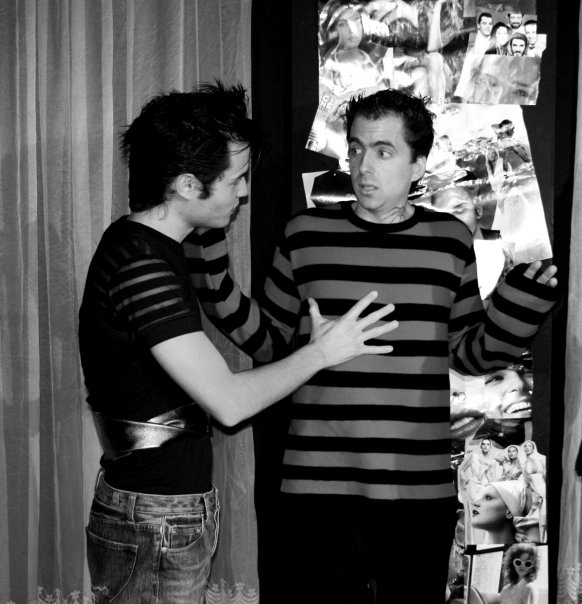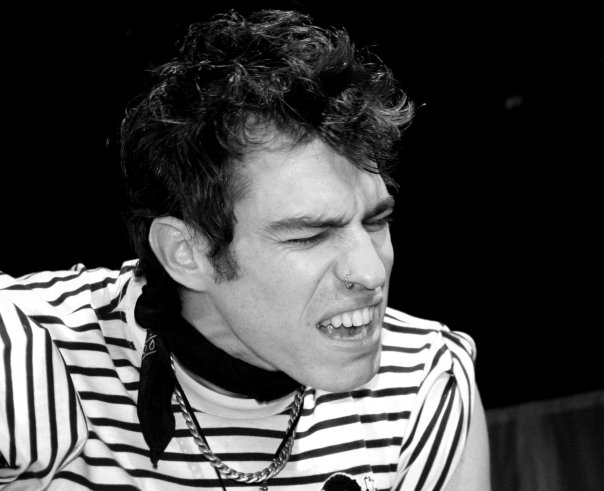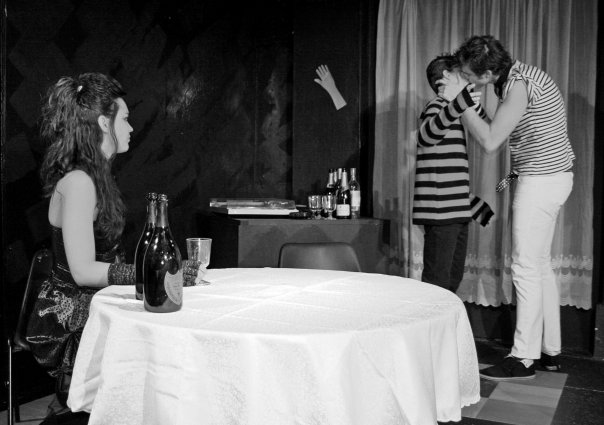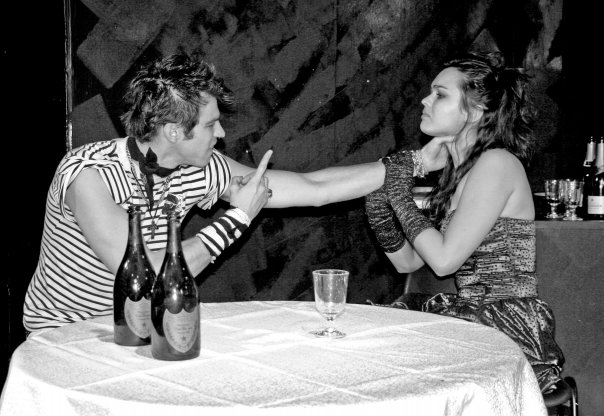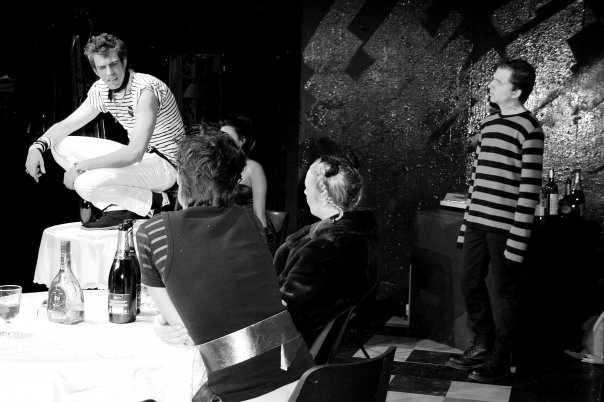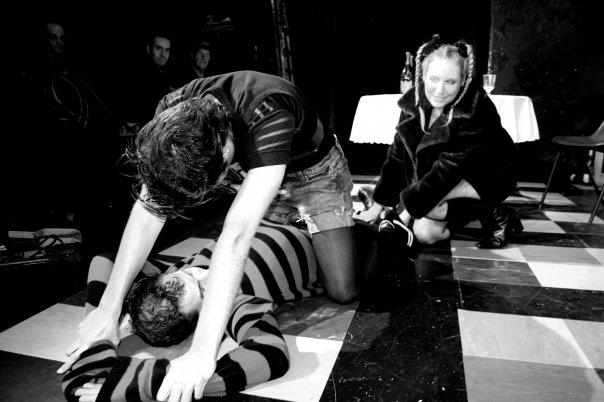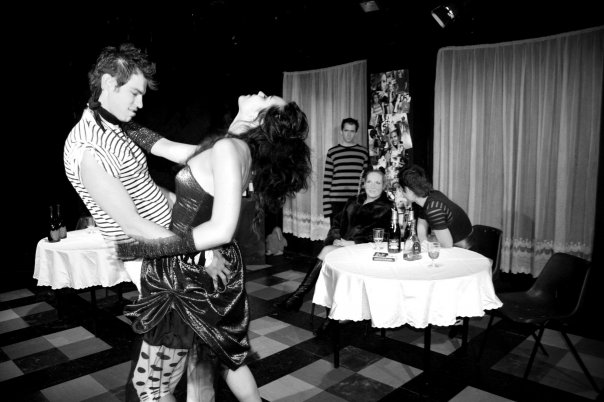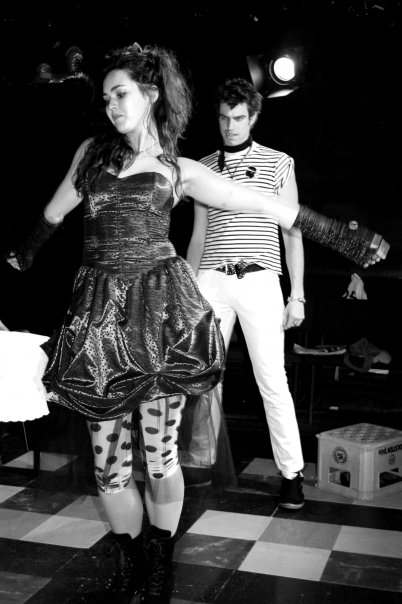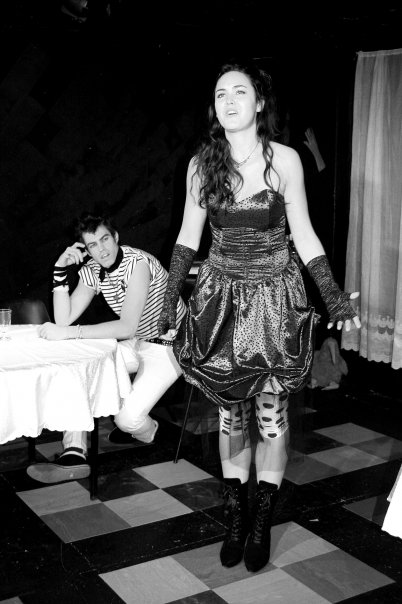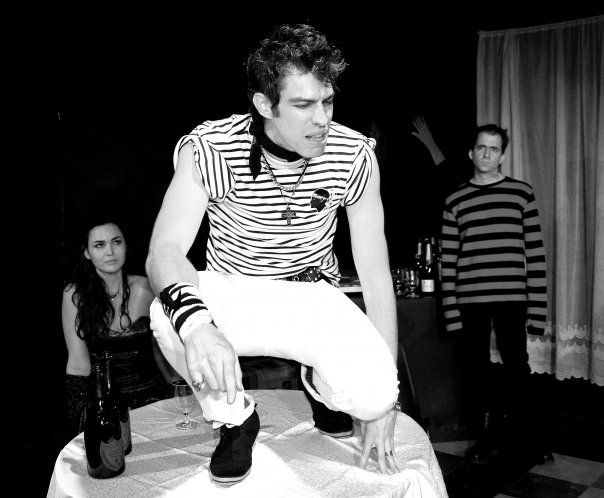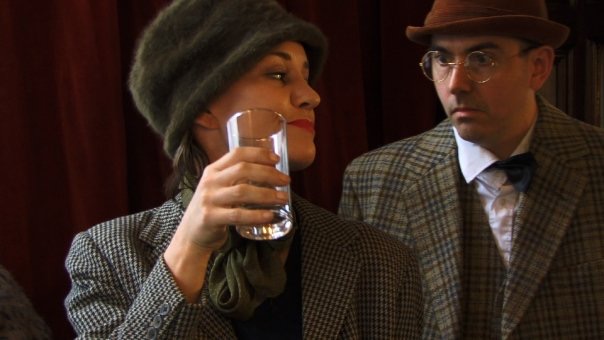Chris Ward Plays
Note
My first (unpaid) job in theatre, 1983-4, was acting in plays by a punk company, Wet Paint Theatre.
This project was the means by which Chris Ward, a writer whose Demonstration of Affection had
got some publicity at the Arts Theatre in 1981, produced and directed his plays. I played a couple
of roles in a biographical play about the French filmmaker Jean Vigo, Love’s A Revolution (as
an anarchist and the actor Michel Simon); a soldier in Amphibious Babies; a psychic punk
called Samurai in Cat Food - The Tribune wrote “The demonic Samurai (James Charlton)
steals the show in his fake leopard skin and plumed hat, as he comes leaping on stage, scattering
words of warning about his extra-terrestrial powers, and scaring the life out of everyone with his
own weird brand of psychotherapy.”
In the mid-1990s, actress Caroline Burns Cooke and I decided to do a play with her in the lead. None
of my own plays were right. I showed her the play I’d in which I’d played a soldier way back in the
early 80s, Amphibious Babies. She liked the play and took the role of Geneva, a peacenik
maternal figure. We produced it at the White Bear with my theatre company, Fireworks. I’d learned a
lot from Ward’s kinetic directorial style, and chose a choreographic style which emphasised movement
and physicality while staying true to the loquacious text. The greatest strength of Ward’s plays is
their language. His own productions tend to be very rapid. I slowed things down. I let the poetry
breathe and be savoured. We got some nice reviews. It was a recommended show in What’s On.
One of the actors, Euan Macnaughton, spent most of the evening hanging upside down as a strung-up
character named Frog. He told me he found it a strangely meditative experience.
Twelve years later, I produced and directed a revival of another Ward play of the 80s, Plastic
Zion. White Bear again. The AD there, Michael Kingsbury, has been supportive of Ward’s work
(as well my own). A gentler play than Amphibious Babies. I concentrated on the relationships.
There were buried feelings between the two friends at the play’s centre. There’s a Tennessee
Williams aspect to the writing. I brought to the surface some of the later queer aspects of the
piece. It was explicit that the friends’ love for each other was more than brotherly. I cast a male
performer in one of the female roles, playing her/him as gender bender. This was the aspect of
plasticity I took from the title – young people manufacturing their lives and identities from the
synthetic material of their own conceptions and desires. Ward plays prefigure the Reality TV shows
of the Noughties. Characters shout at each other, try to affirm their contrived, can barely contain
their emotions and erupt into tantrums.
We last collaborated when I produced the 2011 short film by Chris Ward, What Shall We Do With the
Drunken Sailor? A biopic of the artist and writer, Nina Hamnett. It brought me back to
acting in a Ward piece for the first time since 1984. I played the critic Roger Fry, alongside
Siobhan Fahey, Clive Arrindel, Donny Tourette and some of Ward’s regular collaborators.
Wet Paint and Chris Ward gave me my start in the theatre. These productions paid back whatever was
owed.
Productions
Amphibious Babies
Fireworks Theatre Co. at White Bear Theatre, Kennington, / 22 March – 11 April, 1994
Cast: Keith-Lee Castle (Biff), Caroline Burns Cooke (Geneva), Euan Macnaughton (Frog), Mehrdad
Mehdkhani (Soldier) Thomas Stephen Murphy [Tom Hayes] (The Liquidator), Naomi Warner (Burgundy)
Directed and designed by James Martin Charlton; lighting by Lisa Audouin; music and sound design by
Patrick Nunn; opening music by Sebastian Vittorini
Plastic Zion
Friendly Fire Productions at White Bear Theatre, Kennington, 28 March – 16 April, 2006
Cast: Nigel Croft-Adams (Clem), Caroline O'Hara (Josephine), Minouche Kaftel (Dagmar), Tim McFarland
(Carly), Ben Richardson (Yak)
Directed by James Martin Charlton; assisted by Oliver Atkinson and James Butler; designed by Ayako
Tanako; lighting designed by Peter Harrison
What Shall We Do With the Drunken Sailor?
Wet Paint Productions, 2011
Written and Directed by Chris Ward
Produced by James Martin Charlton
IMDb
Press/Audience Reaction
Amphibious Babies
“Firework Theatre Company's production of Chris Ward's play oozes grunge from every pore. Cigarette
butts carpet the floor of a featureless room and disaffected youths line the walls with nothing to
do but tap away the seconds with heroin-laced needles. There is no plot because there is no point:
the only thing left is to wait for the fascist boot to fall. So to pass the time the characters wax
lyrical to the squalid poetry of a Nirvana album. The room belongs to Geneva, a relic of a once
privileged class who collects non-conformists on the run from the State. Her motives are unclear,
shifting quickly between the maternal, the sexual and the need to find reflections of her own
alienation in the sorry creatures she gathers. In an atmosphere of violent existential angst the
characters tell stories, give and receive pain, pout and pose - anything to pass the time. Through
this Chris Ward's poetry somehow manages to carve a message of hope, or at least the hope of hope.
Underneath the grime and drugged haze these people are trying to catch moments of love and humour,
as if they were waiting for Godot rather than merely waiting. However, if this play were just a rant
then it would be unbearable. Fortunately by being very funny it lubricates its bleak message. The
acting is uniformly excellent. Keith-Lee Castle struts and frets as the punk Rambo Biff, Caroline
Burns Cooke is unnervingly intense as Geneva and Tom Murphy deftly balances endearing humour with
violent acts of masochism as the victimised Liquidator. All this is tightly choreographed by James
Martin Charlton into violent poses, extraneous jerks and shifting chairs. The production's intensity
may discomfort the audience, because this sure ain't Terrence Rattigan. What it is is the voice of a
generation who have rejected the living death of the 9-to-5 routine but who are exposed to the pain
of real freedom without its anaesthesia." - Simon Evans, What's On
"It's time to worry when a harmless piece of '77-flavoured punk nostalgia stops looking terminally
naff and threatens to raise a howl or two against the anomie of these emasculated times. Despite its
unpromising title, Chris Ward's play collects up the manky leftovers from 'Jubilee' and other
assorted mohawk memorabilia, pressure-cooks them for just under two hours and serves up at the end a
qualmish, febrile blast at the establishment. Geneva, a middle-class junkie benefactress has picked
up the nomadic poet Biff with the express intention of bombarding him with an ocean of cod
existentialism and ironic spoof-profundity. The Liquidator (a wonderful title for this irredeemably
spineless character) makes the mistake of inviting along Burgundy, a CB radio waif. And Frog just
hangs around, waiting for the stormtroopers to arrive. Whether it is a tribute to the fail-safe
device of wilful obscurity or just down to the lure of the play's head-rush of energy, Amphibious
Babies proves to be a compelling piece of work. The performances, though often technically
underdone and decidedly lacking in genuine punky accoutrements, wear you down with the sheer force
of their commitment, and the direction is clamorously confident. At times the piece particularly
brings to mind how the travelling community must feel in the face of a mountain of threatened
legislation, though there's a caveat here for the wider population as well. If Major and his band of
merry twerps could ever agree to impose martial law, this is what it might be like." - John
O'Mahoney, Time Out
Plastic Zion
“Plastic Zion, which has just opened at the White Bear, was written in 1982, and is very much
an artefact of that time, featuring a representative subset of the angry, disillusioned youth of
Thatcher’s Britain, and their music. At the centre of this discordant little group, transplanted by
some unfortunate attempt to experience kulture to an abandoned cafe in backwoods France, is the
working-class lad made rock star hero Clem (Nigel Croft-Adams) and his middle-class rebel,
self-mutilating, self-hating, girlfriend Josephine (Caroline O’Hara). Their “groupie” pack – much
depleted from Clem’s glory days – consists of his long term and faithful schoolfriend Yak (Ben
Richardson), who’s been unable to imagine a life of his own, and two spongers, the transvestite
Carly (Tim McFarland), a petulant, camp imp, and the dim but assertive Dagmar (Minouche Kaftel).
Over the course of a moderately drunken evening they squabble, make-up, and act out all of their
anxieties and problems. Yet at the end of it, with the exception of one, perhaps shattering,
revelation, they are at the same point as they started. This is a play that is both better, and
worse, than that description suggests. A sketch of the characters suggest stereotypes, and yet the
playwright, Chris Ward, makes each of these come alive as real, suffering human beings. The strength
of the acting in this Friendly Fire Productions show brings that out – Croft-Adams has an
impressive, restless, raw-boned energy that puts him centre stage, and McFarland is devilishly
endearing in a role that could easily descend to pure drag queen... They speak often in long,
lyrical lines, like those of the songs in the background; it is almost poetry, and prefigures,
perhaps, the arrival of rap. “But what does it all mean?” That’s a line that might well be uttered
by any of these characters, and what was left in this audience member’s mind. The programme notes
make a brave attempt to find deep significance in these characters’ uncertainties about identity...
Young people today are playing with roles, and idling away their time in exactly the same ways, I’d
suggest, even if the background music has changed. Plastic Zion offers an entertaining
evening, an historical excursion…” – My London Your London
